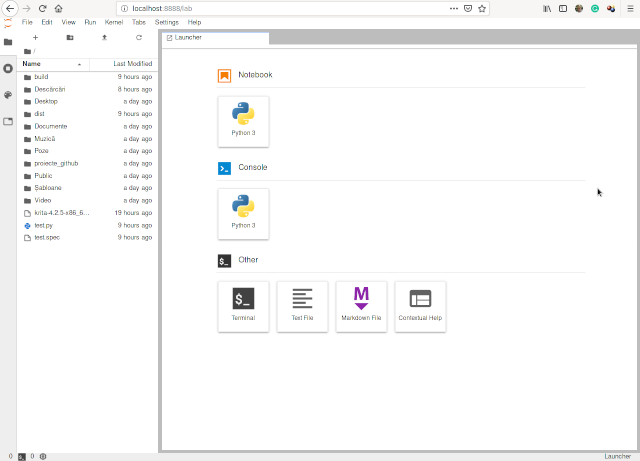Today we tested with Fedora 29 a python module called DNF.
All users have used this tool.
This python module is not very documented on the internet.
A more complex example can be found on
DNF tool documentation.
I tried to see what I can get from this module.
Let's start installing it with the pip tool:
$ pip install dnf --user
Here are some tests that I managed to run in the python shell.
[mythcat@desk ~]$ python
Python 2.7.15 (default, Oct 15 2018, 15:26:09)
[GCC 8.2.1 20180801 (Red Hat 8.2.1-2)] on linux2
Type "help", "copyright", "credits" or "license" for more information.
>>> import sys
>>> import dnf
>>> dir(dnf)
['Base', 'Plugin', 'VERSION', '__builtins__', '__doc__', '__file__', '__name__', '__package__',
'__path__', '__version__', 'base', 'callback', 'cli', 'comps', 'conf', 'const', 'crypto', 'db',
'dnf', 'dnssec', 'drpm', 'exceptions', 'goal', 'history', 'i18n', 'lock', 'logging', 'match_counter',
'module', 'package', 'persistor', 'plugin', 'pycomp', 'query', 'repo', 'repodict', 'rpm', 'sack',
'selector', 'subject', 'transaction', 'unicode_literals', 'util', 'warnings', 'yum']
>>> import dnf.conf
>>> print(dnf.conf.Conf())
[main]
assumeno: 0
assumeyes: 0
autocheck_running_kernel: 1
bandwidth: 0
best: 0
...
>>> import dnf.module
>>> import dnf.rpm
>>> import dnf.cli
>>> base = dnf.Base()
>>> base.update_cache()
True
This read all repositories:
>>> base.read_all_repos()
You need to read the sack for querying:
>>> base.fill_sack()
>>> base.sack_activation = True
Create a query to matches all packages in sack:
>>> qr=base.sack.query()
Get only available packages:
>>> qa=qr.available()
Get only installed packages:
>>> qi=qr.installed()
>>> q_a=qa.run()
>>> for pkg in qi.run():
... if pkg not in q_a:
... print('%s.%s' % (pkg.name, pkg.arch))
...
NetworkManager-openvpn.x86_64
NetworkManager-openvpn-gnome.x86_64
coolkey.x86_64
glibc-debuginfo.x86_64
glibc-debuginfo-common.x86_64
kernel.x86_64
kernel.x86_64
kernel-core.x86_64
kernel-core.x86_64
Get all packages installed on Linux:
>>> q_i=qi.run()
>>> for pkg in qi.run():
... print('%s.%s' % (pkg.name, pkg.arch))
You can see more about the Python programming language on
my blog.



